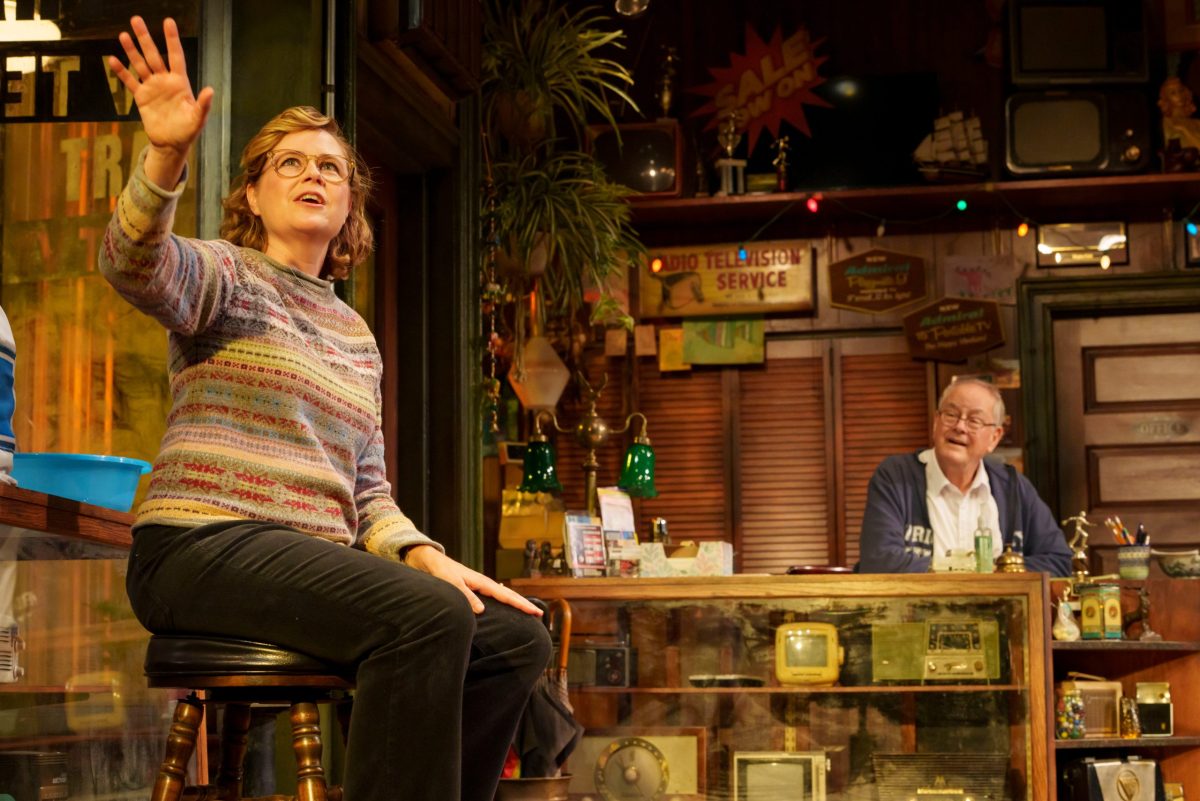By Kerry Reid
Copyright chicagoreader

The election of Chicago native Robert Prevost as Pope Leo XIV in May unleashed a tsunami of old-school Chicago jokes about “Da Pope,” many of which leaned heavily on the tropes of Chicagoans as no-nonsense, sleeves-rolled-up types who don’t suffer pretentious fools. (As a wise colleague observed years ago, “The only thing Chicagoans get pretentious about is their lack of pretension.”)
Lee Kirk’s Ashland Avenue, now in a world premiere kicking off the Goodman’s centennial season (staged by artistic director Susan V. Booth), feels tailor-made for those sensibilities, right down to its title. Ashland isn’t a beautiful street, but by god, it’s a major artery, carrying the lifeblood of businesses large and small, north side and south side.
Ashland AvenueThrough 10/12: Tue–Wed 7:30 PM, Thu 2 and 7:30 PM, Fri 7:30 PM, Sat 2 and 7:30 PM, Sun 2 PM; also Sun 9/21 7:30 PM; ASL interpretation Fri 9/26, audio description and touch tour Sat 9/27 2 PM (touch tour 12:30 PM), Spanish subtitles Sat 9/27 7:30 PM; Goodman Theatre, 170 N. Dearborn, 312-443-3800, goodmantheatre.org, $49-$69
The one in the spotlight in Kirk’s play is Pete’s TV and Video—the flagship (and now only) store in a family-run chain of 16 shops “before Amazon flooded the whole world and wiped us off the map,” as Pete (Francis Guinan) reminds his daughter, Sam (Jenna Fischer). Pete is an old-school Chicago white guy—the kind who can’t understand why he’s not supposed to use the term “powwow” colloquially.
Pete isn’t ready to give up the ghost of his life’s work and wants Sam and her husband, Mike (Chiké Johnson), to take it over or open a new store. But Sam and Mike are already halfway out the door and out of the state. Mike, a graphic novelist, wants to break into animation studios in Hollywood, and Sam wants to get away from the responsibilities of being an adult only child (her mother died when she was very young) and get cracking on that novel she’s always wanted to write. Meantime, Pete’s much younger partner, Jess (Cordelia Dewdney), who used to work for him and then moved into his home with her own two young children, is also ready to move on (or move backwards—she’s thinking of getting back together with her ex and the father of the kids, who has been battling substance abuse).
Kirk, who is married to Fischer and who attended the Theatre School at DePaul University, clearly has affection for Chicago, and in a playwright’s note in the program, he mentions being inspired by returning to the city a few years ago and seeing how many of his college haunts (Lounge Ax, Threepenny Cinema) were no more. (If we’re talking sights on Ashland Avenue, I’d say I still reminisce with several of my friends about the House of Boris—the unlikely name of a long-gone hair salon with memorable signage.)
But at two and a half hours, Ashland Avenue runs too long without covering enough fresh narrative ground to justify the length. Like Madhuri Shekar’s Dhaba on Devon Avenue (presented in a coproduction with Writers Theatre and TimeLine Theatre in July), it definitely has a rich, if familiar, foundation for its story: an aging widowed father who wants to pass on his business to his daughter, and who is stubbornly avoiding the truth about the changing times.
But Shekar’s play also had the added element of immigration and assimilation as part of the story. By contrast, Kirk’s play feels determined to avoid anything that might tell us exactly where in the city Pete’s shop is located. I was also reminded at points of Tracy Letts’s 2008 Steppenwolf play, Superior Donuts, in which an aging donut shop proprietor in Uptown finds his life changed when he hires a young Black man with big ideas for revitalizing the business. But again, we knew where Letts’s play was set in Chicago. If you’re writing a play for the city of neighborhoods, it helps to tell us a bit about where we are exactly.
That lack of specificity adds to the sense that the story itself is a bit generic. But the bigger problem is that the conflicts between Pete and his daughter and Pete and Jess tend to spin their wheels in repetition that doesn’t enlarge our understanding of the characters or their motivations. The central framing device is that Pete is about to receive an award from the unnamed mayor (a man, so at least we know it’s not Lori Lightfoot), and is trying to work on his speech. A Facebook Live sponsored by the Tribune brings in more people than expected (almost a hundred!), which convinces Pete that the world is ready for his store (whose commercials apparently were once as ubiquitous as those for Bert Weinman Ford—also on Ashland Avenue) to have a major renaissance.
It’s a very watchable play, don’t get me wrong. Fischer, probably best known for playing Pam on The Office, isn’t doing a star-vehicle turn here, and her no-nonsense but loving chemistry with Guinan is delightful. And if you’re a fan of Chicago theater, you don’t need me to tell you how much fun it always is to watch Guinan play an everyman with a heart of gold, but maybe not the sharpest instincts to go with it. The production elements are also a treat, especially Kevin Depinet’s rendition of Pete’s shop, filled with television sets from every era (notably, the front of the shop is where the oldest models live, while we see newer and shinier sets through a doorway into another showroom). Jason Lynch’s lighting perfectly captures the gloomy half-light that could be early morning or late afternoon on a Chicago winter’s day.
Once I accepted that the stakes were low and that Kirk had opted for a charming, nostalgic character study, I found it easier to enjoy Ashland Avenue. The second act also feels tighter than the first, which takes too long to set up situations that we can see coming before the characters figure it out. (The ending, though sweet, also feels a little bit telegraphed.) Booth’s cast is delightful. Johnson’s character is underdeveloped on the page, but the actor is nearly perfect as a guy who is just trying to stay out of the way of his wife and father-in-law. And the fate of small businesses (especially now that tariffs are wreaking havoc with our economy) is absolutely a timely subject. If Kirk can find ways to sharpen the focus, Ashland Avenue can well be a solid addition to a growing body of plays about the intertwinings of Chicago commerce and community.



